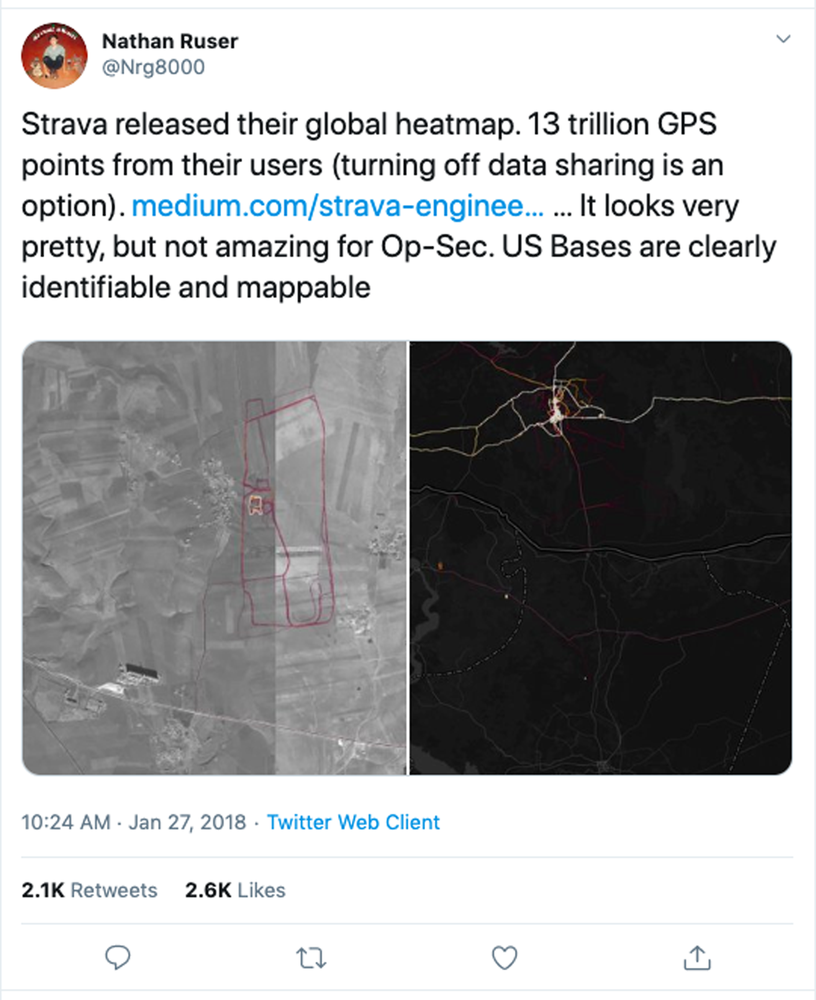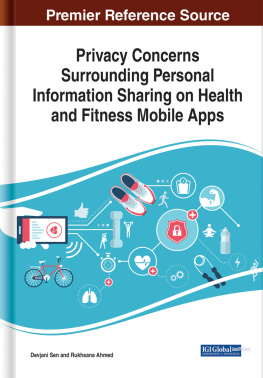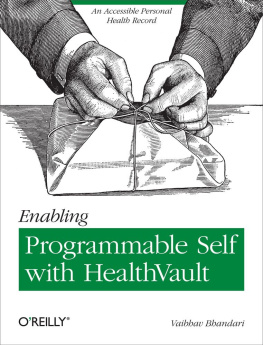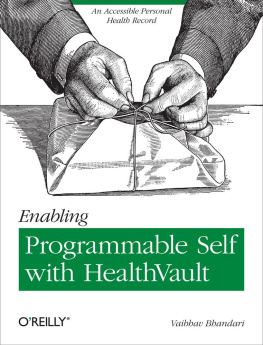Chapter 1
What Can Fitness Apps Teach Us About Group Privacy?
- Miriam J. Metzger
University of California, Santa Barbara, USA - Jennifer Jiyoung Suh
University of California, Santa Barbara, USA - Scott Reid
University of California, Santa Barbara, USA - Amr El Abbadi
University of California, Santa Barbara, USA
ABSTRACT
This chapter begins with a case study of Strava, a fitness app that inadvertently exposed sensitive military information even while protecting individual users information privacy. The case study is analyzed as an example of how recent advances in algorithmic group inference technologies threaten privacy, both for individuals and for groups. It then argues that while individual privacy from big data analytics is well understood, group privacy is not. Results of an experiment to better understand group privacy are presented. Findings show that group and individual privacy are psychologically distinct and uniquely affect peoples evaluations, use, and tolerance for a fictitious fitness app. The chapter concludes with a discussion of group-inference technologies ethics and offers recommendations for fitness app designers.
INTRODUCTION
In November 2017, Strava, a popular fitness app that allows users to record and share their exercise routes or routines via smartphone and fitness trackers, published a global heatmap based on user data. The data were collected from individual users during 2015 and 2017 and consisted of one billion instances of user activities that covered three trillion GPS data points along a distance of 10 billion miles (Drew, 2017; Hern, 2018). The following year, Nathan Ruser, a 20-year-old college student from Australia, posted on Twitter (see Figure 1) that locations and routines of military bases and personnel around the world were being revealed by the heatmap that Strava produced (Prez-Pea & Rosenberg, 2018; Tufekci, 2018).
| Figure 1. Nathan Rusers tweet showing Strava heatmaps (Source: https://twitter.com/Nrg8000/status/957318498102865920?s=20) |
|---|
 |
While the heatmap used data that were anonymized and thus did not reveal personal information about any individual, when the individual data were aggregated to build the heatmap, it revealed the location and routines of identifiable groups, including U.S. military personnel who use Strava and who are based in various countries around the world. Rusers Twitter post quickly caught the attention of the press, and BBC News reported that Stravas heatmap revealed the potential exercise routes of U.S. soldiers in countries such as Syria, Yemen, Niger, Afghanistan, and Djibouti (BBC News, 2018). As Strava had 27 million users around the world by 2018, Ruser noted that this heatmap also showed the perimeter and possible patrol routes of known and secret military bases of other countries as well, such as Russia and Turkey. The revelation that individual data collection that may have seemed harmless in isolation could upend closely-guarded government secrets was a wakeup call to many people who never considered what the larger ramifications of sharing their location data with apps like Strava could be (Romano, 2018, n.p.). In response to the Strava event, U.S. troops and civilian Defense Department employees are now prohibited from using geolocation features on both government-issued and personal devices in locations identified as operational areas (Lamothe, 2018).
The Strava example shows that while aggregating anonymized individual data can protect specific individuals identity information, such data still have privacy implications for groups that are identified or profiled by the technology. The revelation of where a military group is located puts both the group as a whole, as well as individual members of that group, at risk. So, by threatening group privacy (e.g., revealing the location of a secret military base), the privacy and safety of individual group members (e.g., soldiers stationed on that base) are also threatened, even when the data are not linked to any of those individuals identities.
At a larger level, the Strava case highlights a growing area of development in machine learning and data mining, which is the use of algorithms to profile individuals based on data they share with an app in ways that reveal information beyond what the individual explicitly shared about him or herself (see Johnson & Hecht, 2017; Taylor, Floridi, & van der Sloot, 2017). Another example is the use of Facebook likes to predict potentially sensitive personal attributes such as religious or political views, sexual orientation, ethnicity, intelligence, or use of addictive substances (Kosinski, Stillwell, & Graepel, 2013). Although most concern about the collection of big data has focused on individual-level information, advances in data processing are increasing their focus on groups, classes, or subpopulations rather than individuals as the primary objects of value. So, for example, a user of big data such as an advertiser, law enforcement agency, health insurer, or government may not care about a specific individuals identity, but rather if data about that person shed light on a group of people that, say, regularly goes to the local church, or mosque, or synagogue, uses Grindr, or has gone to a hospital licensed to carry out abortions, or indeed shares [some other] feature of your choice (Floridi, 2017, p. 98). Having information about the existence of groups and the types or locations of people who are members may be more valuable than any particular individuals personal data. Floridi (2017) puts this in military terminology by saying that an individual is rarely a High Value Target, like a special and unique building but is often instead part of a High Pay-off Target, like a tank in a column of tanks, and it is the column that matters he says (p. 98). The above examples illustrate that by collecting individual-level data, even anonymously, group-level information may become available. Thus, attention to safeguarding personal information can overlook problems caused by algorithms that extract group-level information (Taylor et al., 2017).
In this way, the Strava incident exposes flaws with current approaches to privacy protection, which focus solely on the individual level (Blanger & Crossler, 2011; Floridi, 2014). Indeed, there are many tools available for people to protect their personal privacy when using apps (e.g., privacy settings, anonymization and encryption of personal data, etc.). But by only protecting personal privacy, group privacy is not protected, and by revealing group privacy, personal privacy can be compromised. The implication of this is that both individual and group information must be protected in order to better protect privacy. This of course applies to fitness apps as well as any other type of app that infers group-level information.
Yet scholars have only recently recognized the need for greater clarity concerning group privacy and its social, legal, and ethical implications (Taylor et al., 2017). This chapter will thus examine how emerging group algorithmic inference technologies may threaten individual and group privacy, whether individuals recognize distinct personal and group privacy concerns when using apps that include such data capabilities, and whether these concerns affect user evaluations of and privacy-related behavior toward such technologies. To do so, it reports data from a study of potential users of a fictitious fitness app that is modeled after Strava. The chapter will then discuss the ethics of group-inference technologies in the context of fitness apps and will conclude with recommendations for ways to include mechanisms for group privacy protection in the design of such apps.













